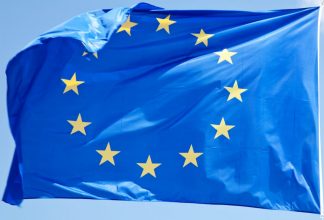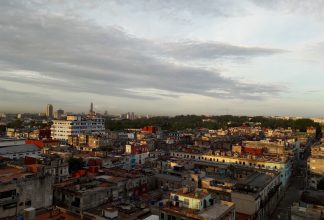Notes to the European External Action Service
Letter #13 by Amador Blanco Hernandez.
In July 2019, Civil Rights Defenders invited Cuban human rights defenders and civil society organisations to contribute with texts on how the European Union should work towards Cuba. This letter is written by Amador Blanco Hernandez.
Notes to the European External Action Service
Considerations on the EU-Cuba Political Agreement of 2016 that was provisionally applied on November 1, 2017:
- The Agreements exist to BE ENFORCED. The long negotiation process presupposes seriousness in which the interests of Human Rights, Rule of Law and democracy proclaimed in international relations have credibility. For its enforcement in good faith it would be a contradiction to slow down and hinder the effectiveness of the Agreement.
- The European Parliament must show alignment with the objectives it applies in its nations.
- The common diplomacy of the EU must show coherence with the principles and purposes of the United Nations and an independent policy that helps to promote the sustainable development of freedom in Cuba.
- The European Parliament’s criticism of human rights violations in Cuba have been rejected with arrogance and impunity by the rulers, being a demonstration of bad faith. Civil society sees as mockery and lack of harmony, the contempt for human rights by the government. The government shows no willingness to comply with the Agreement by excluding civil society from any dialogue. What is significant is that the view of the people is a lag between the letter and the results of the Agreement, manipulated for the benefit of the status quo. In the prevailing conditions it is zero-sum.
- Advantages: The EU is the first investor, the first issuer of tourists as a whole and the third as a business partner. It has an undeniable material importance, but this is not translated into political influence on the practice of human rights.
- The accession of Cuba to the International Covenants on Human Rights has not been achieved since 2006. The Assembly demonstrates a sense of disturbance in the discussion of the pacts, with Cuba being a member of the UN Human Rights Council.
- Pre-crisis difficulties of low economic productivity marked by contradictions on Adam Smith’s or Milton Freedman’s theories. Low living standards, social inequality and inflated prices, characteristics of wild capitalism.
- The influence of Russia, Venezuela, and China is superior to Europe. EU diplomacy makes little effort to have visibility and influence in independent civil society. The diplomatic corps has limited connections with independent factors. The Cotonou Agreement establishes and assesses human rights and democracy and consultation between the parties. The EU lacks perspective on the influence on Cuba.
- Limitations: Political absence, strengthening civil society and educated social leaders in the will of progress with the Rule of State. The maintenance of the status quo is for internal security and the criterion of peace to avoid an exodus or humanitarian crisis, which is far from the objectives of the EU and the UN, and the interests of the people of Cuba.
- The Agreement coincides with the arrest of activists, repression, pogroms, expulsions from the workplace due to criticism, preventing the “regulados” from leaving the country, hate attacks and the use of the press to defame critics.
- Themes: Beneficial to the Rule of Law that the Agreement strengthens. The people do not know the model of disintegration due to violence, balkanisation, isolation blockades (such as the US) are impolitic, methods of exodus and contempt for sovereignty.
- EU advantages. The CFSP (external service of Europe) and the cultural identification of Portugal and Spain with common security. Strength of humanitarian assistance and cooperation plans of the UN and the EU in the economy, disasters and culture. Ease of enhancing security spaces for human rights, cooperation, peace and development.
- Proposals for freedom: The Agreement must be subscribed, while civil society is included in the benefits and in being part of the solutions. The developments of the Rule of Law are the problem of confrontation for what the government considers applying exclusion. The Constitution lacks the scope and expectations that were considered. Cuba cannot be a one-party democracy, considering this is impolitic.
- The EU must institutionalise that its diplomats have a fluid dialogue with civil society and human rights leaders. Provide workshops on human rights and governance, sovereignty and independence of powers. The regime responds as dictatorship and despises the values of the EU
Amador Blanco Hernandez, Jose Marti National Human Rights Commission
About Amador Blanco Hernandez
Cuban professor, historian and humanist. He is the founder of the National Human Rights Commission José Martí of Cuba (1988). He was sentenced to three years of ‘correctional work with internment’ by the Cuban government. After his release, he was arrested again in December 1992 for the crime of ‘making enemy propaganda’ and transferred to the State Security Operations and Investigations Unit in Santa Clara. After his arrest, Amador Blanco went on a hunger strike, a situation that, even after his release, has left sequels and permanent damage to his health. He was declared a prisoner of conscience by Amnesty International, and in 2014 he was awarded the Patmos Prize from the Patmos Institute for considering him a believer who offered “testimony of genuine faith and visions of hope, like Juan in Patmos, on the island of Cuba.”

